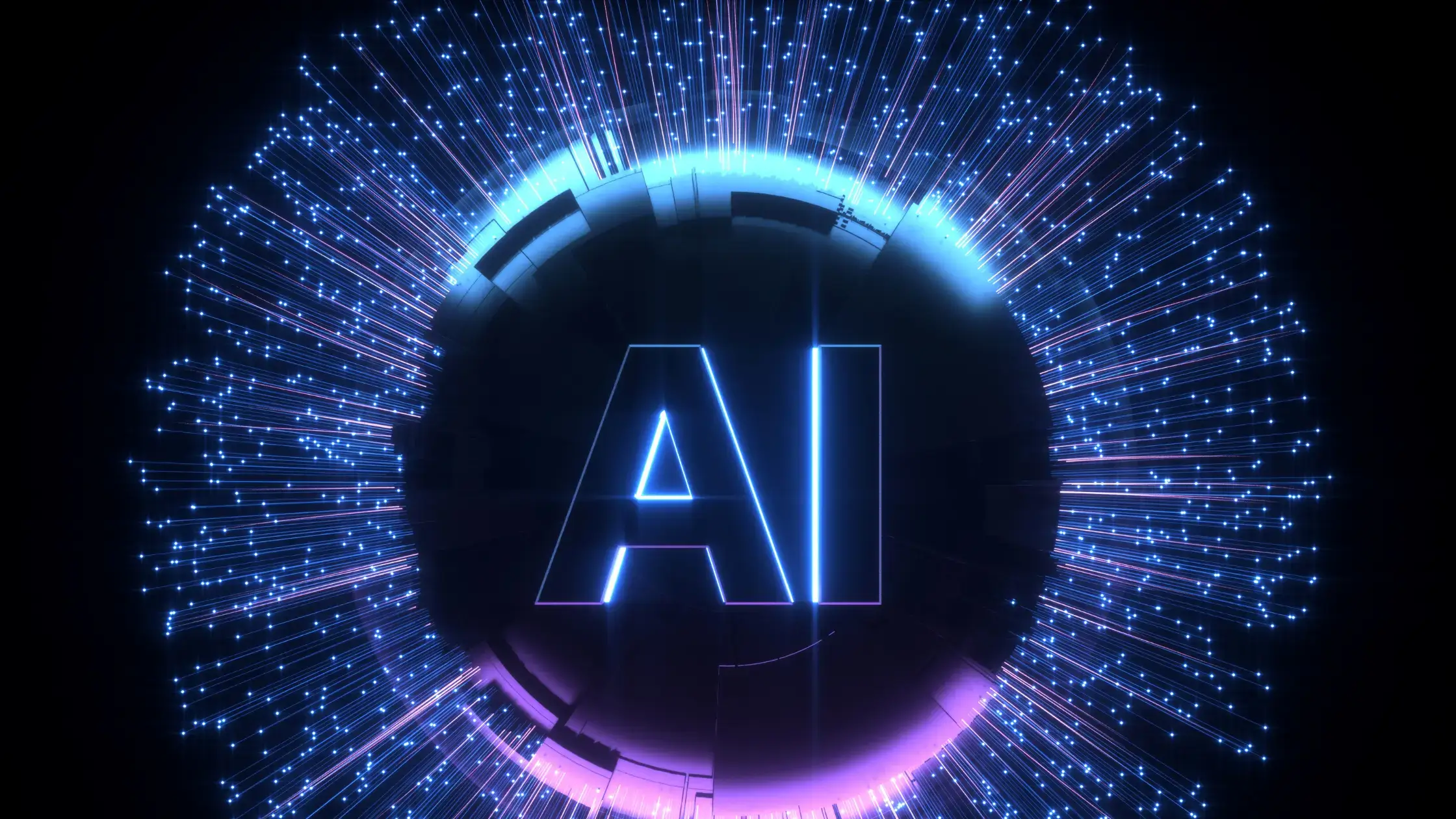Artificial intelligence has revolutionized many industries, including education, healthcare, retail, e-commerce, public relations, small businesses, recruitment and services, and manufacturing.
Read on for tips and strategies for becoming an AI expert in this career guide.
By analyzing vast amounts of data and making informed decisions, AI can significantly improve efficiency and productivity in these industries.
Various Data Science Courses equip professionals with essential skills to harness AI's potential, ensuring they can stay at the forefront of this evolving field.
And the best part is that as AI continues to evolve and improve, its impact will only grow stronger.

Source: Unsplash
What Influence Does AI Have Across The Major Industries?
Education
AI has been incorporated in various ed-tech platforms like Knewton, which utilizes adaptive learning to personalize educational content, enhancing the student's learning experience.
Furthermore, an increasing number of students are choosing to pursue an AI degree online, which can only be good for the industry in the long run.
Writing
AI has revolutionized the writing industry by developing tools that improve writing quality.
Platforms like Editpad provide a wide suite of AI-powered writing tools to improve overall writing quality. They do so by enhancing clarity, checking plagiarism, and elevating multiple other writing aspects.
AI writing tools are transforming the skill set required across various domains. Using platforms like EditPad or DreamGen, writers enhance story generation with innovative AI role-playing features.
Healthcare
AI-driven applications, such as PathAI, employ machine learning to assist pathologists in diagnosing diseases, reducing errors, and speeding up processes.
Retail and eCommerce
Amazon uses AI in its recommendation engines to predict user preferences based on past purchases and browsing history, improving the shopping experience and boosting sales.
Entertainment industry
AI is making large inroads in the entertainment sector. AI-based tools like Scriptbook and HyperWrite are used for storytelling and scriptwriting.
The following resource, which highlights how AI is used in entertainment, including some of the ways it's utilized in this sector.
Public relations
AI tools like Cision help automate processes, monitor brand mentions, and analyze public sentiment to devise effective PR strategies.
Small businesses (SMB) and recruitment
AI-powered platforms like ZipRecruiter help match job seekers with relevant opportunities, simplifying recruitment for businesses.
Services and manufacturing
Production management software, together with predictive maintenance tools, such as those offered by SparkCognition, utilizes AI to predict equipment failures and schedule maintenance, reducing downtime and improving operational efficiency.
Companies with in-house developers can use AI-powered tools to automate coding tasks. An example of such a tool is GitHub Copilot, which assists developers by suggesting code snippets in real-time.
You can find more details in the GitHub Copilot tutorial, or explore various GitHub Copilot alternatives that offer similar features with different capabilities.
AI is vital to our daily lives, spanning multiple facets, making staying current with the latest advancements essential.
As AI continues to drive societal transformation, becoming an AI expert requires dedication, passion, and a keen desire to explore this evolving field.
Want to be an AI professional? A comprehensive employee guide can help you on your journey, providing an overview of opportunities in the AI field. Here are crucial steps to becoming an AI expert.

Setting The Foundation: 4 Essential Steps To Begin Your AI Journey
To become an AI expert, you need to build a solid foundation. Here are the essential steps to kickstart your AI journey.
1. Gain a strong understanding of the fundamentals
Start by familiarizing yourself with the basic concepts of AI, including machine learning, deep learning, and neural networks.
Explore online resources, books such as "Artificial Intelligence: A Modern Approach," and tutorials to build a strong foundation.
The stronger your grasp of these foundational elements, the easier it will be to delve into more complex aspects of AI.
2. Develop programming skills
Being proficient in languages like Python and R is essential for AI. You can practice coding and implementing algorithms to solve problems on platforms like Codecademy or HackerRank.
These platforms provide a wide array of coding challenges that can significantly enhance your skills.
If you’re just getting started, you can learn coding from scratch before tackling more advanced challenges.
Remember, fluency in these languages is not an overnight achievement; it requires consistent practice and dedication.
3. Acquire knowledge in mathematics and statistics
Mathematics indeed forms the backbone of AI. Refresh your knowledge of linear algebra, calculus, probability, and statistics to grasp the mathematical principles underlying AI algorithms.
Online courses like Khan Academy's Linear Algebra can provide valuable learning resources. Another effective way to learn mathematics can be online classes with Brighterly math tutors.
Gaining a robust understanding of these concepts will help you better understand and develop complex AI models.
4. Engage in practical projects
Nothing substitutes practical experience when it comes to mastering AI. Apply your knowledge by working on real-world AI projects available on platforms like Kaggle.
These projects help solidify your understanding and build a portfolio showcasing your ability to apply AI techniques to solve problems.
Remember, each project you undertake enhances your understanding and brings you one step closer to becoming an AI expert.

How to Become an AI Expert: Navigating The Learning Path
As you delve deeper into AI, it is essential to navigate the learning path correctly. Here are some strategies to become an AI expert.
Choose a specialization
AI encompasses a range of domains, including natural language processing, computer vision, robotics, and data science. Identify your interest and focus on building expertise in that domain.
Engage in online courses
Consider pursuing a degree or an artificial intelligence course at reputable institutions offering specialized programs, comprehensive knowledge, and hands-on experience.
For learners seeking industry-aligned, advanced training, enrolling in an AI Engineering Course can help build strong foundations in machine learning, deep learning, and real-world AI system development.
A platform like MyGreatLearning offers a curated list of various AI courses from prestigious universities and institutions worldwide, giving you a wide range of options based on your needs and interests.
Courses taught by industry experts provide practical knowledge and strengthen your skills.
Professionals such as Andrew Ng, co-founder of Coursera and Adjunct Professor at Stanford University, offer courses that deliver not only technical knowledge but also insights into the latest industry trends and practical applications of AI.
Another great example is Geoffrey Hinton, a pioneer in deep learning, who shares his extensive knowledge through online courses.
Their teachings will equip you with a nuanced understanding of AI's capabilities and limitations, a crucial skill for any AI professional.
In addition to the core AI curriculum, these courses often feature hands-on projects, fostering an active learning environment where you can apply your newly acquired knowledge and skills.
Platforms like Kaggle also provide a wealth of real-world datasets for you to work on, allowing you to gain practical AI problem-solving experience.
Learning from such authoritative figures and engaging with practical projects not only strengthens your skills but also lends credibility to your learning journey.
It equips you with a holistic understanding of AI, preparing you to navigate and contribute effectively to this rapidly evolving field.
Collaborate and network

Source: Unsplash
Learn AI by Building Real Projects
Want to turn AI knowledge into real-world experience?
Learning AI isn’t just about courses and theory — it’s about applying what you know to real projects. One of the fastest ways to build practical AI skills is by experimenting with real websites, workflows, and user interactions.
POWR gives you a hands-on way to do exactly that. From AI-powered forms and email automation to customer engagement tools, POWR lets you build, test, and optimize real use cases — without needing a full engineering team.
Whether you’re learning prompt design, automation logic, or AI-driven personalization, working with live tools helps you understand how AI fits into real products that businesses actually use.
👉 Start building real AI-powered projects with POWR
Create, test, and learn with tools used by thousands of businesses.
Where Can I Learn About AI Career Opportunities?
There are no limits to the many places you can learn about careers in artificial intelligence, including the AI career guide. It is most definitely the hot topic of the day, anywhere you look.
One easy way is to go to your favorite social media platform and search for hashtags on YouTube, such as #artificialintelligence or #ai, to find a wealth of information on the topic.
Here are a few places you can go to find out more from AI industry experts:
Online communities
Platforms such as AI Stack Exchange, Towards Data Science, and AI Alignment are vibrant digital spaces for AI learners and experts. These platforms enable you to ask questions, impart knowledge, and engage in thought-provoking discussions about AI.
Conferences
Attending conferences offers a brilliant opportunity to meet industry leaders and like-minded peers. Notable events like NeurIPS, ICML, and AAAI are esteemed for their high-quality AI and machine learning content.
Hackathons or competitions
Getting involved in AI competitions or hackathons, such as those hosted by Kaggle, can be a rewarding experience. These events are a platform to learn, network, and even gain recognition for your AI expertise.
Local events and meetups
Explore Meetup to find local AI and machine learning gatherings in your area to connect with professionals nearby.
Mastering The Skills: Key Areas Of Focus in AI Career Development

To become a proficient AI expert, mastering specific skills is essential. Here are the key areas of focus in AI career development.
Understanding these areas not only builds a solid foundation but also shapes a clear career trajectory in the ever-evolving field of artificial intelligence.
Machine learning algorithms
Develop a deep understanding of machine learning algorithms, such as decision trees, support vector machines, and neural networks. Learn how to apply them to different problem domains.
Data pre-processing and feature engineering
Gain expertise in preprocessing techniques, data cleaning, feature selection, and feature engineering. Understand how to effectively prepare data for training AI models.
Model evaluation and validation
Learn methods to validate AI models and validate them, including techniques like cross-validation, precision-recall, and ROC curves. Understand how to optimize model performance and avoid overfitting.
Ethical considerations
As AI becomes more prevalent, ethical considerations are crucial. Familiarize yourself with ethical guidelines and responsible AI practices to ensure your work meets ethical standards.

Tips For Building a Successful Career as an AI Expert
Continuous learning
AI rapidly evolves, so staying up to date with the latest advancements is vital.
Stay curious, explore new technologies, and continuously enhance your knowledge through research papers, conferences, and online resources. Websites like arXiv and Google Scholar can provide you with many research papers on the latest AI advancements.
To access these publications, you can use APIs to scrape Google Scholar.
Additionally, MOOC platforms like Coursera and edX offer numerous courses that can help you stay abreast of the latest trends and technologies in AI.
Collaboration and teamwork
AI projects often involve interdisciplinary teams. Develop strong collaboration and communication skills to work effectively with professionals from diverse backgrounds.
Utilizing task management software can help to effectively allocate and track project assignments among team members.
Understanding different perspectives and combining various skill sets can lead to more innovative solutions and greater success in AI projects.
Participating in collaborative platforms like GitHub can provide valuable experience in teamwork and open-source contribution.
Showcase your expertise
Build a solid online presence through a personal website, blog, or portfolio. Share your projects, research, and insights to establish yourself as an industry authority.
Platforms like LinkedIn, Medium, and GitHub access management can help you publish work, connect with peers, and demonstrate your credibility.
A few practical ways to showcase your AI expertise:
- Publish case studies of your AI projects (problem → approach → results), including code repos and write-ups.
- Create a portfolio with 3–6 focused projects (NLP, computer vision, forecasting, recommender systems, etc.) that show depth rather than just breadth.
- Share learnings consistently (weekly posts, short demos, or “what I learned” threads) to build momentum and visibility.
- Contribute to open source or collaborate on public projects to prove your ability to work in real-world environments.
- Speak or teach where possible (meetups, webinars, workshops) to build authority and strengthen your communication skills.
Remember: employers and clients care less about buzzwords and more about evidence—clear thinking, measurable outcomes, and the ability to explain your work.

Conclusion
Becoming an AI expert isn’t a single milestone—it’s a journey built on fundamentals, hands-on practice, and continuous learning.
Start by strengthening your core knowledge in programming, math, and machine learning concepts.
Then, apply what you learn through real projects, specialize over time, and immerse yourself in communities where you can learn from others and stay current.
Most importantly, treat your growth like a long-term craft: stay curious, build real things, document your progress, and keep improving.
With consistency, you’ll develop the technical depth and confidence needed to thrive in one of the most exciting fields shaping the future.
FAQ
1. How long does it take to become an AI expert?
It depends on your starting point and your consistency. Many people build solid AI skills in 6–12 months with focused study and hands-on projects, while deeper expertise (research-level depth or advanced specialization) can take multiple years. The fastest path is combining learning with real projects and regular practice.
2. Do I need a degree to work in AI?
A degree can help, but it’s not required in many roles. Strong practical skills, a project portfolio, and the ability to explain your work often matter more than credentials. If you don’t have a degree, focus on building projects, contributing to open source, and learning from reputable courses.
3. What programming language should I learn first for AI?
Python is the most common first choice because it’s widely used across machine learning, data science, and automation. If you’re doing statistics-heavy work, R can also be useful. Start with one language (usually Python), get comfortable, then expand as needed.
4. What are good beginner AI projects to build a portfolio?
Start with projects that demonstrate end-to-end problem solving, such as:
- A classification project (spam detection, sentiment analysis)
- A forecasting project (sales or traffic prediction)
- A recommendation project (product or content suggestions)
- A simple computer vision project (image classification)
Use real datasets, explain your process, and present results clearly.
5. How do I stay updated with AI trends without getting overwhelmed?
Pick a few reliable sources and keep a routine:
- Follow research hubs like arXiv and Google Scholar
- Take targeted courses when a skill gap appears
- Join communities, newsletters, and events that align with your specialization
Focus on what supports your goals instead of trying to track everything at once.



